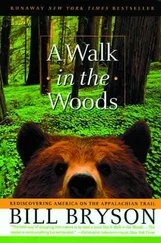Bill Bryson - Notes from a small Island
Здесь есть возможность читать онлайн «Bill Bryson - Notes from a small Island» весь текст электронной книги совершенно бесплатно (целиком полную версию без сокращений). В некоторых случаях можно слушать аудио, скачать через торрент в формате fb2 и присутствует краткое содержание. Жанр: Современная проза, на английском языке. Описание произведения, (предисловие) а так же отзывы посетителей доступны на портале библиотеки ЛибКат.
- Название:Notes from a small Island
- Автор:
- Жанр:
- Год:неизвестен
- ISBN:нет данных
- Рейтинг книги:4 / 5. Голосов: 2
-
Избранное:Добавить в избранное
- Отзывы:
-
Ваша оценка:
- 80
- 1
- 2
- 3
- 4
- 5
Notes from a small Island: краткое содержание, описание и аннотация
Предлагаем к чтению аннотацию, описание, краткое содержание или предисловие (зависит от того, что написал сам автор книги «Notes from a small Island»). Если вы не нашли необходимую информацию о книге — напишите в комментариях, мы постараемся отыскать её.
Notes from a small Island — читать онлайн бесплатно полную книгу (весь текст) целиком
Ниже представлен текст книги, разбитый по страницам. Система сохранения места последней прочитанной страницы, позволяет с удобством читать онлайн бесплатно книгу «Notes from a small Island», без необходимости каждый раз заново искать на чём Вы остановились. Поставьте закладку, и сможете в любой момент перейти на страницу, на которой закончили чтение.
Интервал:
Закладка:
Maybe I'm a bit simple, but it has always seemed to me that the scale of Blenheim Palace and the scale of Marlborough's achievement are curiously disproportionate. I can understand how in a moment of mad rejoicing a grateful nation might have awarded turn, say, a twoweek timeshare for life in the Canaries and maybe a set of cutlery or a Teasmade, but I can't for the life of me comprehend how a scattering of triumphs in obscure places like Oudenard and Malplaquet could be deemed to have entitled the conniving old fart to one of the great houses of Europe and a dukedom. More extraordinary still to my mind is the thought that nearly 300 years later the duke's heirs can litter the grounds with miniature trains and bouncing castles, charge admission and enjoy unearned positions of rank and privilege simply because a distant grandsire happened to have a passing talent for winning battles. It seems a most eccentric arrangement to me.
I remember once reading that the tenth Duke of Marlborough, on a visit to one of his daughter's homes, announced in consternation from the top of the stairs that his toothbrush wasn't foaming properly. It turned out that his valet had always put toothpaste on his brush for him, and as a consequence the duke was unaware that dental implements didn't foam up spontaneously. I rest my case.
As I was standing there taking in the view and reflecting on the curious practice of primogeniture, some wellgroomed young woman on a bay horse bounded past very near to where I was standing. I've no idea who she was, but she looked rich and privileged. I gave her a little smile, such as one habitually gives strangers in an open place, and she stared flatly back at me as if I was not important enough to smile at. So I shot her. Then I returned to the car and drove on.
I spent two days driving through the Cotswolds and didn't like it at all not because the Cotswolds were unlovely but because the car was. You are so sealed off from the world in a moving vehicle, and the pace is all wrong. I had grown used to moving about at walking speed or at least at British Rail speed, which is often, of course, much the same thing. So it was with relief, after a day spent dashing about through various Chippings and Slaughters and TweenessupontheWaters, that I abandoned the car in a car park in Broadway and took to my feet.
The last time I had seen Broadway, on an August afternoon some years before, it had been a nightmare of sclerotic traffic and flocks of shuffling daytrippers, but now, out of season, it seemed quiet and forgotten, its High Street nearly empty. It's an almost absurdly pretty place with its steeply pitched roofs, mullioned windows, prolific gables and trim little gardens. There is something about that golden Cotswold stone, the way it absorbs sunlight and then feeds it back so that even on the dullest days villages like Broadway seem to be basking in a perennial glow. This day, in fact, was sunny and gorgeous, with just a tang of autumn crispness in the air which gave the world a marvellous clean, freshlaundered feel. Halfway along the High Street I found a signpost for the Cotswold Way and plunged off down a track between old buildings. I followed the path across a sunny meadow and up the long slope towards Broadway Tower, an outsized folly high above the village. The view from the top over the broad Vale of Evesham was, as always from such points, sensational gently undulating trapezoids of farmland rolling off to a haze of distant wooded hills. Britain still has more landscape that looks like an illustration from a children's story book than any other country I know a remarkable achievement in such a densely crowded and industrially minded little island. And yet I couldn't help feeling that the view may have been more bucolic and rewarding ten or perhaps twenty years ago.
It is easy to forget, in a landscape so timeless and fetching, so companionably rooted to an ancient past, how easily it is lost. The panorama before me incorporated electricity pylons, scattered housing estates and the distant sunny glints of cash and carry warehouses. Far worse, the dense, carefully knitted network of hedgerows was showing distinct signs of becoming frayed and disjointed, like the pattern on a candlewick bedspread that has been picked off by idle fingers. Here and there fragments of overgrown hedge stood stranded and forlorn in the midst of otherwise featureless fields.
Did you know that between 1945 and 1985 England lost 96,000 miles of hedgerows enough to girdle the earth four times? So muddled has been government policy towards the countryside that for a period of twentyfour years farmers could actually get one grant to plant hedgerows and another to grub them up. Between 1984 and 1990, despite the withdrawal of government money to plough up hedgerows, a further 53,000 miles were lost. You often hear it said (and I know because I once spent three days at a symposium on hedgerows; the things I do to keep my children in Reeboks) that hedgerows are, in fact, a transitory feature of the landscape, a relic of the enclosure movements, and that trying to save them merely thwarts the natural evolution of the countryside. Indeed, increasingly you hear the view that conservation of all types is fussy, retrograde and an impediment to progress. I have before me as I write a quote from Lord Palumbo arguing that the whole vague notion of heritage 'carries the baggage of nostalgia for a nonexistent golden age which, had it existed, might well have been the death of invention', which is so fatuous it breaks my heart.
Quite apart from the consideration that if you followed that argument to its logical conclusion you would tear down Stonehenge and the Tower of London, in point of fact many hedgerows have been there for a very, very long time. In Cambridgeshire, I know of a particularly lovely hedge, called Judith's Hedge, that is older than Salisbury Cathedral, older than York Minster, older indeed than all but a handful of buildings in Britain, and yet no statute stands between it and its destruction. If the road needed widening or the owners decided they preferred the properly to be bounded by fenceposts and barbed wire, it would be the work of but a couple of hours to bulldoze away 900 years of living history. That's insane. At least half the hedgerows in Britain predate the enclosure movements and perhaps as many as a fifth date back to AngloSaxon times. Anyway, the reason for saving them isn't because they have been there for ever and ever, but because they clearly and unequivocally enhance the landscape. They are a central part of what makes England England. Without them, it would just be Indiana with steeples.
It gets me a little wild sometimes. You have in this country the most comely, the most parklike, the most flawlessly composed countryside the world has ever known, a product of centuries of tireless, instinctive improvement, and you are half a generation from destroying most of it for ever. We're not talking here about 'nostalgia for a nonexistent golden age'. We're talking about something that is green and living and incomparably beautiful. So if one more person says to me, 'Hedgerows aren't really an ancient feature of the landscape, you know,' I shall very likely punch him in the hooter. I'm a great believer in Voltaire's famous maxim, 'Sir, I may not agree with what you say, but I shall defend to the death your right to be a complete asshole,' but there comes a time when a line must be drawn.I struck off down a wooded back lane to Snowshill, three miles away. The leaves were golden and rustly and the sky vast and blue and empty but for an occasional slowmoving wedge of migrating birds. It was a wonderful day to be abroad the kind of day that has you puffing your chest and singing 'Zippity Doo Dah' in the voice of Paul Robeson. Snowshill drowsed in the sunshine, a cluster of stone cottages gathered round a sloping green. I bought an entrance ticket to Snowshill Manor, now in the hands of the National Trust but from 1919 to 1956 the home of an eccentric character named Charles Wade, who devoted his life to accumulating a vast and unfocused assortment of stuff, some of it very good, some of it little more than junk clavichords, microscopes, Flemish tapestries, snuff and tobacco boxes, maps and sextants, samurai armour, pennyfarthing bicycles, you name it until he had filled his house so full that there was no room left for him. He spent his last years living happily in an outbuilding, which, like the house, has been preserved as it was on the day he died. I enjoyed it very much, and afterwards, as the sun sank in the west and the world filled with long shadows and a vague, entrancing smell of woodsmoke, I hiked back to my car a happy man.
Читать дальшеИнтервал:
Закладка:
Похожие книги на «Notes from a small Island»
Представляем Вашему вниманию похожие книги на «Notes from a small Island» списком для выбора. Мы отобрали схожую по названию и смыслу литературу в надежде предоставить читателям больше вариантов отыскать новые, интересные, ещё непрочитанные произведения.
Обсуждение, отзывы о книге «Notes from a small Island» и просто собственные мнения читателей. Оставьте ваши комментарии, напишите, что Вы думаете о произведении, его смысле или главных героях. Укажите что конкретно понравилось, а что нет, и почему Вы так считаете.












